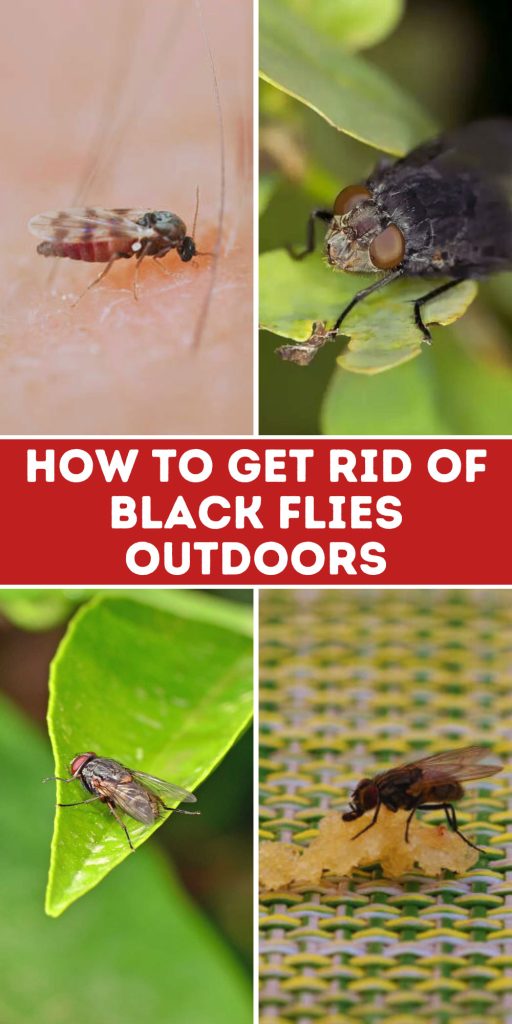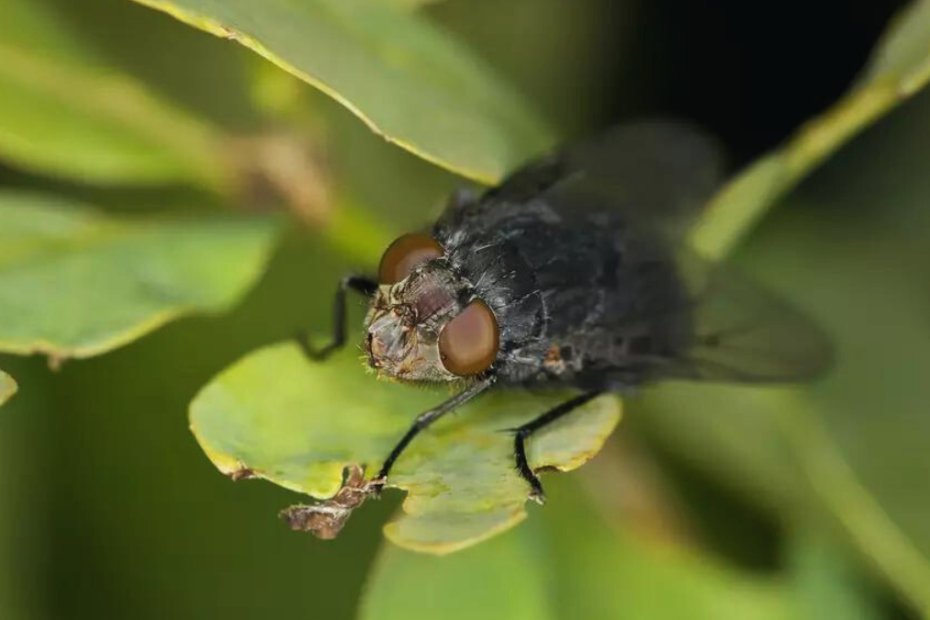You love spending time outdoors, but black flies can quickly ruin the experience. These tiny pests not only bite but also swarm around, making it almost impossible to enjoy your backyard, camping trip, or hiking adventure. Understanding how to effectively get rid of black flies can transform your outdoor activities from frustrating to fun.
In this text, you’ll discover practical and proven methods to keep black flies at bay. From natural repellents to strategic landscaping tips, we’ll cover everything you need to know to reclaim your outdoor space. Say goodbye to itchy bites and hello to uninterrupted outdoor enjoyment.
Key Takeaways
- Understand Black Flies: Recognize that black flies thrive near water bodies and are active during daylight hours, causing painful bites and potential health risks.
- Preventive Measures: Reduce black fly populations by eliminating standing water, maintaining yard drainage, and incorporating plant repellents like basil and lavender.
- Natural Remedies: Leverage essential oils (e.g., lavender, eucalyptus) and plant-based repellents (e.g., marigolds, catnip) to deter black flies eco-friendly.
- Chemical Solutions: Use insecticides and larvicides with active ingredients like permethrin and Bacillus thuringiensis israelensis (Bti) for effective control of black fly adults and larvae.
- Physical Barriers: Employ physical barriers such as protective clothing and installing fine mesh screens and nets to keep black flies out of your outdoor space.
- Regular Monitoring and Adjustments: Conduct periodic inspections and make long-term environmental adjustments, such as improving drainage and maintaining water features, to sustain a black fly-free outdoor environment.

Understanding Black Flies
Black flies can quickly ruin outdoor activities, making it crucial to understand these pests and how to manage them effectively.
What Are Black Flies?
Black flies are small, dark-colored insects known for their painful bites. They belong to the family Simuliidae and thrive near flowing water where they lay their eggs.
Key Characteristics of Black Flies:
- Size: Typically 1-5 mm in length
- Color: Black or dark gray
- Habitat: Near rivers, streams, and other fresh flowing water bodies
- Behavior: Active during daylight hours, especially in the morning and late afternoon
Why Are Black Flies a Problem?
Black flies are problematic due to their biting habits and potential health risks they bring to outdoor activities. Understanding the specific issues they cause helps in effectively countering them.
- Painful Bites: Their bites can cause swelling and irritation
- Health Risks: Potential vectors for diseases like river blindness (onchocerciasis)
- Disruption: Interfere with outdoor activities, causing discomfort and annoyance
By understanding black flies’ biology and the issues they cause, you can better carry out strategies to get rid of them outdoors.
Preventive Measures
Effective preventive measures can significantly reduce the presence of black flies in your outdoor spaces. By implementing these strategies, you can enjoy your outdoor activities without the nuisance and health risks posed by black flies.
Eliminating Breeding Grounds
Black flies thrive near water sources where they lay eggs. Disrupting these areas can prevent them from breeding.
- Remove Standing Water: Eliminate puddles, clogged gutters, and any stagnant water. Black flies breed in still water, so ensuring none is present is crucial.
- Regular Maintenance: Clean birdbaths and water features weekly to prevent egg-laying.
- Drainage: Improve yard drainage to avoid water accumulation and lessen breeding sites.
Landscaping Tips to Deter Black Flies
Specific landscaping techniques can deter black flies by making the environment less favorable for them.
- Plant Repellent Vegetation: Incorporate plants that repel black flies, such as basil, lavender, and marigolds.
- Shade Reduction: Trim overgrown bushes and trees to reduce shaded, moist areas where black flies congregate.
- Wind Barriers: Install fans or strategically place wind-breaking elements to create a breezy environment, which black flies avoid.
By adopting these preventive measures, you’ll create a less hospitable environment for black flies, enhancing your outdoor experience.
Natural Remedies
Natural remedies offer effective solutions to manage black flies outdoors. They leverage ingredients known for their repellent properties, providing an eco-friendly alternative to chemical treatments.
Essential Oils
Essential oils are renowned for their natural insect-repellent properties.
- Lavender Oil: Known for its pleasant scent and calming effects, lavender oil repels black flies effectively. Mix a few drops with water in a spray bottle and apply it around outdoor seating areas.
- Eucalyptus Oil: Highly effective against black flies, eucalyptus oil can be combined with a carrier oil and applied to skin or diffused in the area for protection.
- Tea Tree Oil: This multi-purpose essential oil is popular for its antibacterial properties and effectiveness in repelling black flies. Mix with coconut oil and apply to pulse points.
Plant-Based Repellents
Using plant-based repellents can enhance your outdoor environment and keep black flies at bay.
- Marigold Plants: Marigolds emit a scent that deters black flies, making them an excellent addition to garden borders or pot arrangements.
- Basil Plants: Basil not only serves as a culinary herb but also emits an aroma that repels black flies. Place potted basil plants around seating areas for added protection.
- Catnip: Research has shown that catnip is effective in repelling black flies. Plant it in garden beds or pots near entryways and outdoor gathering spaces.
Natural remedies such as essential oils and plant-based repellents provide environmentally friendly methods to create a black fly-free outdoor space.
Chemical Solutions
When natural methods aren’t enough, chemical solutions can effectively combat black flies. These options, when used responsibly, can provide rapid and substantial relief from these pests.
Insecticides
Insecticides are chemicals designed to kill insects. You can use them to target adult black flies and reduce immediate populations.
Key Points:
- Active Ingredients: Look for insecticides containing permethrin, bifenthrin, or cyfluthrin. These chemicals are proven to be effective against black flies.
- Formulations: Common forms include sprays, foggers, and granules. Sprays are ideal for direct application to affected areas, foggers work well for treating larger spaces, and granules can be used to create barriers around the yard.
- Application Tips:
- Timing: Apply early in the morning or late in the evening when black flies are less active to maximize effectiveness.
- Coverage: Ensure thorough coverage of foliage, shaded areas, and other potential resting sites.
- Frequency: Reapply according to the product instructions, usually every few weeks, to maintain control.
Larvicides
Larvicides are chemicals that target the larval stage of insects. These products prevent black fly larvae from maturing into adults, effectively breaking the reproduction cycle.
- Active Ingredients: Bacillus thuringiensis israelensis (Bti) is a common and effective larvicide. It specifically targets the larvae without harming other wildlife.
- Formulations: Available in granules, liquids, and briquettes. Granules and liquids are used for treating standing water, while briquettes are ideal for long-term control in ponds and other water features.
- Application Tips:
- Water Sources: Apply larvicides to all potential breeding grounds, such as ponds, puddles, and other stagnant water bodies.
- Timing: Use larvicides during the early spring, just before the black fly season starts, and continue applications throughout the season as needed.
- Dosage: Follow product instructions carefully to ensure effective larval control without overdosing.
Utilizing chemical solutions complements natural repellents and preventive measures, offering a comprehensive approach to achieving a black fly-free outdoor environment.
Physical Barriers
Preventing black flies from ruining your outdoor activities can be effectively achieved through physical barriers. These methods create tangible impediments that prevent flies from accessing your space.
Protective Clothing
Wearing suitable clothing can significantly reduce the risk of black fly bites. Opt for loose, light-colored clothing that covers most of your skin. Dark or bright colors tend to attract flies more.
Key Features:
- Long Sleeves: Cover your arms fully to protect against bites.
- Pants: Ensure full-length pants to shield your legs.
- Hats with Nets: Consider wide-brimmed hats with integrated head nets for additional protection.
By using protective clothing, you can enjoy outdoor activities with minimal disturbance from black flies.
Installing Screens and Nets
Screens and nets form an effective physical barrier to keep black flies out of your areas.
Steps to Install Screens:
- Measure Openings: Determine the dimensions of the area (e.g., windows, porches, gazebos).
- Select Material: Use fine mesh screens to ensure no flies can enter.
- Install Properly: Secure the screens tightly in place to avoid any gaps.
- Window Screens: Fine mesh screens on windows can prevent flies from entering indoor spaces.
- Gazebo Nets: Wrap around outdoor gazebos or similar structures to keep flies out.
Installing screens and nets ensures a fly-free zone, letting you enjoy your outdoor spaces peacefully.
Maintaining a Fly-Free Outdoor Space
Maintaining a fly-free outdoor space involves consistent monitoring and environmental adjustments. Implementing regular inspections and making long-term changes to your environment ensures a comfortable and black fly-free area.
Regular Inspections
Conducting regular inspections helps prevent black fly infestations from becoming problematic.
Common Inspection Points
- Water Features: Check for larvae in ponds, fountains, and similar features.
- Plants: Inspect foliage for insect activity.
- Shade Areas: Look for moist, shaded spots where flies may breed.
- Outdoor Furniture: Examine areas under and around furniture.
Inspection Steps
- Identify Hotspots: Focus on known breeding areas, especially around water.
- Check Standing Water: Ensure there’s no stagnant water in containers, birdbaths, or puddles.
- Examine Vegetation: Look under leaves and flowers for signs of larvae.
- Monitor Shady Areas: Keep shaded areas dry and clear of organic matter.
Long-Term Environmental Adjustments
Long-term adjustments to your surroundings help deter black flies from returning.
Key Adjustments
- Water Management: Improve drainage, maintain water features, and eliminate standing water.
- Landscaping Modifications: Plant repellent vegetation like marigolds and basil.
- Structural Improvements: Install screens and nets over windows and outdoor living spaces.
- Enhance Drainage: Ensure proper yard drainage to prevent stagnant water.
- Maintain Water Features: Regularly clean and treat ponds and fountains.
- World Wisely: Use plants that repel black flies and reduce shaded areas.
- Install Barriers: Add physical barriers like nets to keep flies out of specific areas.
By continually inspecting your outdoor space and implementing these environmental adjustments, you can create and maintain a black fly-free environment.
Conclusion
Taking control of your outdoor space from black flies doesn’t have to be an uphill battle. By understanding their behavior and implementing a mix of natural repellents, smart landscaping, and chemical solutions when necessary, you can significantly reduce these pests. Consistent monitoring and environmental adjustments will ensure that your outdoor activities remain enjoyable and uninterrupted. With these strategies, you’ll be well-equipped to keep black flies at bay and make the most of your time outside.
Frequently Asked Questions
What are black flies?
Black flies are small, dark-colored insects that thrive near flowing water. They are particularly active during daylight hours and can cause painful bites and potential health risks.
How can I reduce the presence of black flies in my outdoor space?
To reduce black flies, eliminate standing water, maintain water features, improve yard drainage, plant repellent vegetation, reduce shaded areas, and create wind barriers.
What are some natural repellents for black flies?
Natural repellents include essential oils like lavender, eucalyptus, and tea tree oil. Planting marigolds, basil, and catnip in your garden can also help deter black flies.
Are there effective chemical solutions for managing black flies?
Yes, insecticides with active ingredients like permethrin, bifenthrin, and cyfluthrin are effective. Additionally, larvicides like Bacillus thuringiensis israelensis (Bti) target black fly larvae to break the reproduction cycle.
What physical barriers can I use to protect myself from black flies?
Wear protective clothing such as long sleeves, full-length pants, and hats with nets. Installing screens and nets on windows and gazebos creates tangible barriers against black flies.
How often should I inspect my outdoor space for black flies?
Regular inspections are essential. Focus on water features, plants, shaded areas, and outdoor furniture. Frequent checks help prevent infestations and ensure proper water management.
